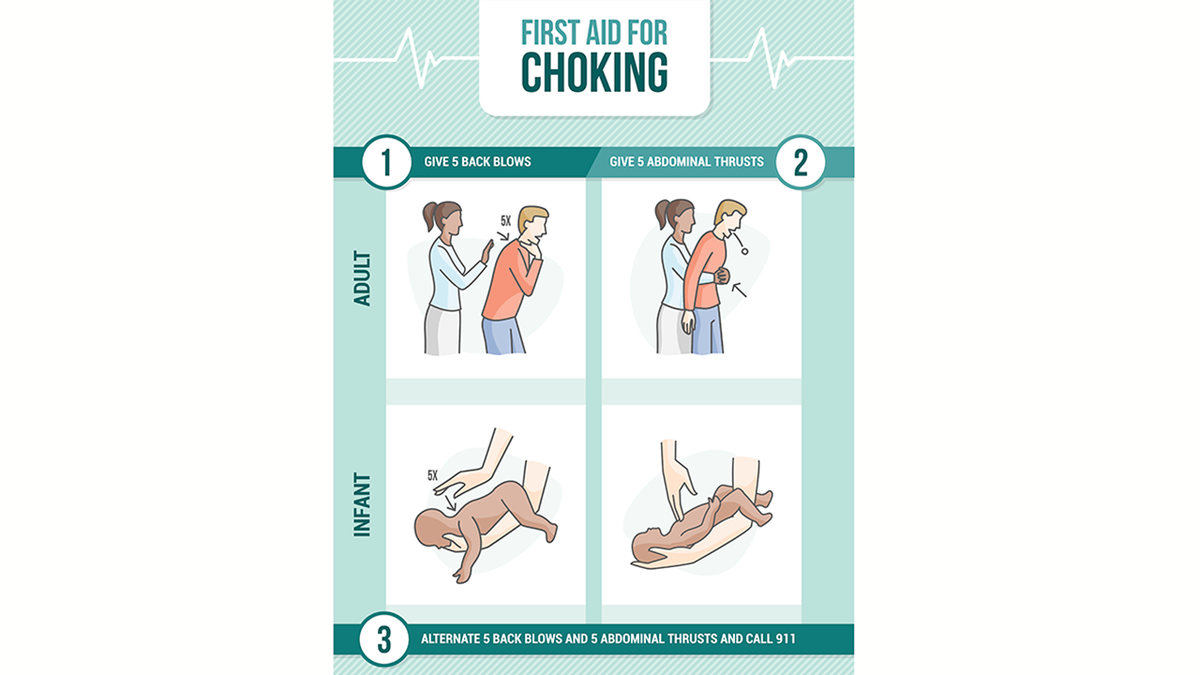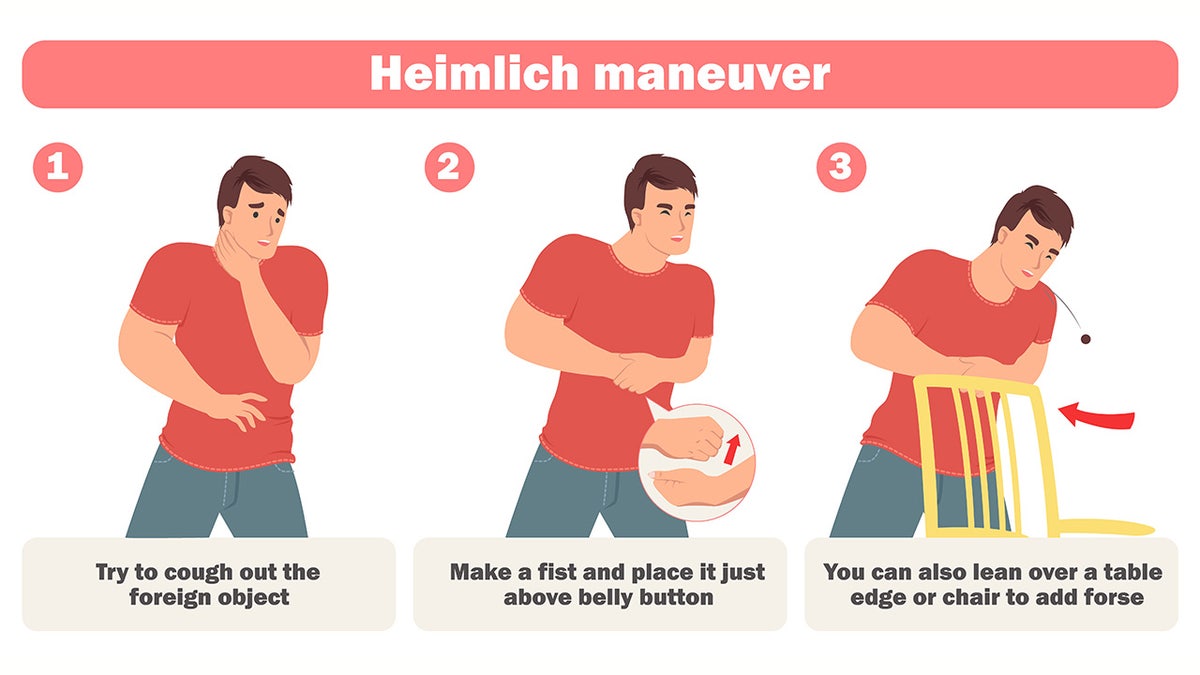A choking emergency can turn really scary, really quickly.
Whether it’s yourself or another person, knowing how to remove the blockage while staying calm can be the difference between life and death.
The Heimlich maneuver is a first-aid method recommended by most health organizations, which uses abdominal thrusts to dislodge an obstruction from a person’s windpipe.
BOY, 8, SAVES CHOKING FRIEND WITH HEIMLICH MANEUVER: SEE THE VIDEO
Mass General Brigham, a health care system in Boston, Massachusetts, shared on its website step-by-step guidance on how to effectively perform the Heimlich, provided by emergency medicine doctor Wendy Macias-Konstantopoulos, MD.
1. Call 911
In any choking emergency, Mass General Brigham suggests first calling 911 to report that someone may need the help of a medical professional.
If there is another person present, one person should call 911 while the other begins doing the Heimlich.
2. Assess the situation
The Heimlich maneuver should not be performed on someone who can still talk, breathe or cough, according to Macias-Konstantopoulos.
BAD BUNNY’S HIT SONG HAS ‘RIGHT TEMPO’ FOR LIFE-SAVING CPR, AMERICAN HEART ASSOCIATION SAYS
In that case, encourage someone exhibiting these signs to continue coughing to dislodge the object.
If none of these signs are present, or if the person is exhibiting the universal choking sign, start by administering up to five sharp blows to the person’s back with the heel of your hand between their shoulder blades.

3. Initiate the Heimlich
If the person is still choking after a few blows to the back, experts recommend starting the Heimlich maneuver.
Macias-Konstantopoulos’ guidance is to first stand behind the choking person, or kneel if it’s a child.
TEACHER, DRIVING HOME FROM WORK, PULLS OVER TO SAVE CHOKING 100-YEAR-OLD WOMAN WITH HEIMLICH MANEUVER
Wrap your arms around their torso from the back. Make a fist with one hand and grab it with the other.
Place your hands in between the person’s belly button and rib cage.

Next, thrust in an inward and upward motion on the diaphragm. This will force air out of the lungs and remove the blockage. Repeat these abdominal thrusts up to five times, the doctor advised.
If the choking continues, go back to the five back blows followed by five abdominal thrusts until the airway is cleared or help has arrived.
For people who may be pregnant or obese, the Heimlich maneuver can be administered with five chest thrusts to the breastbone, or middle of the chest, instead of the abdomen.
What to do when a baby is choking
Mass General Brigham warned that the Heimlich maneuver should not be used on infants younger than 12 months.
For more Health articles, visit foxnews.com/health
Instead, if a baby under a year old is choking, hold them face down along the length of your arm or thigh, keeping their head lower than their bottom.
Sharply hit the baby on their back, firmly but not hard enough to injure them, up to five times, the health care system advised.

Once the blockage is dislodged, check the baby’s mouth and remove any visible objects with a finger.
If the blows to the back don’t work, try performing chest thrusts by holding the baby face up in the same orientation.
CLICK HERE TO SIGN UP FOR OUR HEALTH NEWSLETTER
Keep their head lower than their body and support the baby’s neck and head with your hand, according to Macias-Konstantopoulos.
Place two to three fingers on the baby’s breastbone, or in the middle of their chest, and press sharply one inch downward and upward up to five times.

As children in particular run a high risk of choking, the doctor advised parents and guardians to be careful with foods like popcorn, nuts, grapes, hot dogs and hard candy.
“Cut children’s food into small pieces before they eat,” she recommended.
“Keep choking hazards out of children’s reach, keep a close eye on your child while they eat and supervise play time.”
What to do if you’re choking
If you’re choking while alone, the same Heimlich technique can be performed on yourself, according to Mass General Brigham.
Place your fists right above your belly button and pull inward and upward into your diaphragm.
Alternatively, try bending over a hard surface, such as the back of a chair or countertop, and shove yourself into the same area of your abdomen to create a similar force to your lungs.
If you are unable to speak, many states allow texts to be sent to 911, the health care system noted.
“Type the numbers ‘9-1-1’ into the ‘to’ or ‘recipient’ field,” Macias-Konstantopoulos instructed. “Text your location and the nature of your emergency right away.”
Read the full article here











